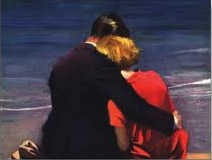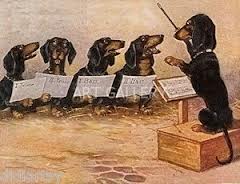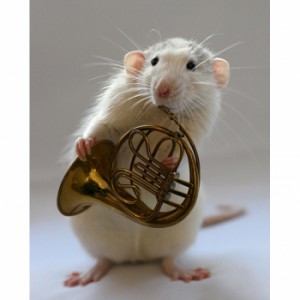L’attività prosegue e il 17 marzo 2012 viene alla luce, in versione eBook e in inglese, Cross Currents di Barbara Masterton.
L’autrice, romanziera già affermata, aveva in passato pubblicato unicamente con editori tradizionali. Ambientati prevalentemente nel Sud dell’Inghilterra e in particolare nel Dorset, dov’è nata e cresciuta, i suoi romanzi si contraddistinguono per uno stile narrativo molto curato ed elegante unito a un’acuta analisi introspettiva delle sue eroine: donne che lottano per affrancarsi dalla schiavitù dei ricatti morali che affliggono i rapporti famigliari, dei segreti taciuti e dei meccanismi, talvolta perversi, messi in atto da personalità irrimediabilmente sempre in conflitto ed esacerbate dalle convenzioni sociali.
In Cross Currents la protagonista è Julia, un’attraente e nubile madre quarantenne che accetta, per inerzia, di sposare un suo precedente e ricco spasimante dei tempi del liceo, adattandosi a condurre un’esistenza agiata accanto a un uomo che sente di non amare:
“So he saw the fast approaching mountain of water almost as quickly as she did, whose expectation seemed to have conjured it from the far ocean beyond the heaving bay. Julia held her breath, every muscle of her body tense as the mighty wave rose across the pebble strand and flung itself upwards to engulf the wall. A moment later, there he was, still there.Julia relaxed with a huge sigh, of what, relief, disappointment? Yes, of course it was relief. There he was, crouching against a metal seat, holding on for dear life, triumphant. She watched him straighten up and continue his arduous progress towards her, growing larger by the minute, returning home. She rested her hot forehead against the cold glass, drained of strength, unutterably tired as if she had been struggling inside with a turmoil as wild as the one outside. She did not raise her head until she heard the sound of his key in the door and his shout, unnecessary but typical, announcing his safe arrival.
«I’m back, Julia.»
Yes, so he was. The atmosphere in the flat changed perceptibly with his entrance. As the door banged shut behind him his over-powering personality surged through the rooms, very much as the wind had done earlier. It seemed to Julia that everything, animate and inanimate, experienced a frisson of awareness at his presence, the very dust in the air stirred beneath his breeziness. From introspective lethargy, Julia became bright and cheerful – he wanted her no other way, having no patience with emotions he would not take the trouble to understand. (…)
It had taken Bruce six, unrelenting months to convince Julia that she had much to gain by marrying him and another six months for her to realise how much she had lost by acquiescing. How foolish and selfish she had been, how easily flattered and deceived. Not that she had thought herself to be in love with him. Physically attracted, yes, very much so, as if her body craved a reminder of an almost forgotten pleasure, but she knew what it was to be truly in love, to have that love fulfilled and then to be deprived of it. She also knew what it was to be loved and not to be able to return it.”
Per anni ha gelosamente custodito uno scomodo segreto che ha fatto soffrire i suoi famigliari, in particolare l’adorata madre che è venuta a mancare senza potere conoscere la verità, ma anche chi è stato condannato ad amare Julia di nascosto e in silenzio.
La gelosia, l’invidia e l’egoismo serpeggiano in famiglia, avvelenandone i rapporti. La rivalità fra sorelle è una realtà antica quanto il mondo, latente ma sempre viva, radicata e multiforme:
“As soon as he had left the room, Julia opened her eyes and consulted the digital clock beside her on the bedside table, just in case for once he had made a concession for Sunday morning, but no, it was just past seven-thirty, time for her wake-up cup of tea from now till eternity.
On weekday mornings and most Saturday mornings, Bruce left the flat before Julia made an appearance in the kitchen and had his breakfast at his restaurant, walking there and back for the good of his physique. He liked to kick-start the day of as many persons as possible. Julia drank the tea and went to take a shower; a thorough cleansing to wash away every trace of the night, every memory, but that was not possible. Her mind, which was still starved of love, felt betrayed by the body which was having too much of a good thing. It was ironic, but Frances envied her. Not that she had ever said so, but between sisters what was not said, or was merely hinted at, could be even more meaningful than explanations. Julia had been given to understand that Nashe had become unexciting in bed and Frances did not need to be told that Bruce had energy to spare. Julia smiled rather spitefully at her image in the bathroom mirror as she brushed a little too vigorously at the enamel on her teeth, as if they were still contaminated with alien saliva. Frances had been against her marrying Bruce and now she thought she understood why. It wasn’t that she would be materially better off than her sister, Frances had more than enough money and a lovely home; it wasn’t even that Julia would be leaving their widowed father to live on his own in his old age, leaving him a prey to the widow next-door, it was that she would be enjoying a sex life a lot more interesting than her own. Julia knew it mattered to Frances from the sort of novels she read. If you can’t do it, teach it, if you can’t have it, read about it. When Thomas had been the lover in question, Frances had been able to feel sorry for her as being unfulfilled, rather sad, really. Julia rinsed and spat umpteen times with gusto, lathered her treacherous body with scented cream, to facilitate its treachery, she realized with a swift pang of shame, covered it with lovely clean, expensive clothes, which were a comforting compensation, and sallied forth into the rest of the controlled environment she now called home, where everything worked at the touch of a button, even herself, all at the mercy of a control freak called Bruce.”
Inevitabilmente, il momento della verità colpirà e sconvolgerà come vento di tempesta la quiete apparente. Niente sarà più come prima, ma proprio in quel frangente Julia si renderà conto che l’amore incondizionato e la fiducia sono riposti proprio dove meno si aspettava, e potrà finalmente iniziare una nuova vita di pienezza.

The activity continues and on March 17th 2012 Cross Currents by Barbara Masterton comes to light in eBook version. The author, already a successful novelist, has until now only published in the traditional way.
Mainly set in the South of England, and precisely in Dorset where she was born and grew up, her novels are characterized by a refined and elegant style of narration, coupled with a sharp introspective portrait of her heroines: women who struggle to free themselves from the bondage of moral blackmail which poisons family ties; from well kept secrets and twisted dynamics set in motion by conflicting personalities beyond remedy, embittered by social conventions.
In Cross Currents the main character is Julia, an attractive single mother in her forties, who out of apathy accepts to marry a wealthy previous suitor from her schooldays, fitting herself to enjoy a comfortable life with a man she knows she doesn’t love:
“So he saw the fast approaching mountain of water almost as quickly as she did, whose expectation seemed to have conjured it from the far ocean beyond the heaving bay. Julia held her breath, every muscle of her body tense as the mighty wave rose across the pebble strand and flung itself upwards to engulf the wall. A moment later, there he was, still there. Julia relaxed with a huge sigh, of what, relief, disappointment? Yes, of course it was relief. There he was, crouching against a metal seat, holding on for dear life, triumphant. She watched him straighten up and continue his arduous progress towards her, growing larger by the minute, returning home. She rested her hot forehead against the cold glass, drained of strength, unutterably tired as if she had been struggling inside with a turmoil as wild as the one outside. She did not raise her head until she heard the sound of his key in the door and his shout, unnecessary but typical, announcing his safe arrival.
«I’m back, Julia.»
Yes, so he was. The atmosphere in the flat changed perceptibly with his entrance. As the door banged shut behind him his over-powering personality surged through the rooms, very much as the wind had done earlier. It seemed to Julia that everything, animate and inanimate, experienced a frisson of awareness at his presence, the very dust in the air stirred beneath his breeziness. From introspective lethargy, Julia became bright and cheerful – he wanted her no other way, having no patience with emotions he would not take the trouble to understand. (…)
It had taken Bruce six, unrelenting months to convince Julia that she had much to gain by marrying him and another six months for her to realise how much she had lost by acquiescing. How foolish and selfish she had been, how easily flattered and deceived. Not that she had thought herself to be in love with him. Physically attracted, yes, very much so, as if her body craved a reminder of an almost forgotten pleasure, but she knew what it was to be truly in love, to have that love fulfilled and then to be deprived of it. She also knew what it was to be loved and not to be able to return it.”
For years she has jealously kept a deep secret making her family suffer, especially her mother, whom she adores, who dies without knowing the truth, but even someone who was doomed to love Julia in silence.
Jealousy, envy and selfishness are well spread among the family members, poisoning their relationships. Rivalry among sisters is a reality as old as the world, latent but nevertheless still alive, deep-rooted and many-sided:
“As soon as he had left the room, Julia opened her eyes and consulted the digital clock beside her on the bedside table, just in case for once he had made a concession for Sunday morning, but no, it was just past seven-thirty, time for her wake-up cup of tea from now till eternity.
On weekday mornings and most Saturday mornings, Bruce left the flat before Julia made an appearance in the kitchen and had his breakfast at his restaurant, walking there and back for the good of his physique. He liked to kick-start the day of as many persons as possible. Julia drank the tea and went to take a shower; a thorough cleansing to wash away every trace of the night, every memory, but that was not possible. Her mind, which was still starved of love, felt betrayed by the body which was having too much of a good thing. It was ironic, but Frances envied her. Not that she had ever said so, but between sisters what was not said, or was merely hinted at, could be even more meaningful than explanations. Julia had been given to understand that Nashe had become unexciting in bed and Frances did not need to be told that Bruce had energy to spare. Julia smiled rather spitefully at her image in the bathroom mirror as she brushed a little too vigorously at the enamel on her teeth, as if they were still contaminated with alien saliva. Frances had been against her marrying Bruce and now she thought she understood why. It wasn’t that she would be materially better off than her sister, Frances had more than enough money and a lovely home; it wasn’t even that Julia would be leaving their widowed father to live on his own in his old age, leaving him a prey to the widow next-door, it was that she would be enjoying a sex life a lot more interesting than her own. Julia knew it mattered to Frances from the sort of novels she read. If you can’t do it, teach it, if you can’t have it, read about it. When Thomas had been the lover in question, Frances had been able to feel sorry for her as being unfulfilled, rather sad, really. Julia rinsed and spat umpteen times with gusto, lathered her treacherous body with scented cream, to facilitate its treachery, she realized with a swift pang of shame, covered it with lovely clean, expensive clothes, which were a comforting compensation, and sallied forth into the rest of the controlled environment she now called home, where everything worked at the touch of a button, even herself, all at the mercy of a control freak called Bruce.”
Inevitably, the moment of truth strikes unexpectedly, and like a stormy wind will disrupt the apparent calm. Nothing will ever be the same, but in that very moment Julia awakens to realize that love and trust are there for her, where she had least expected them to be, and she can finally enjoy life to the full.





